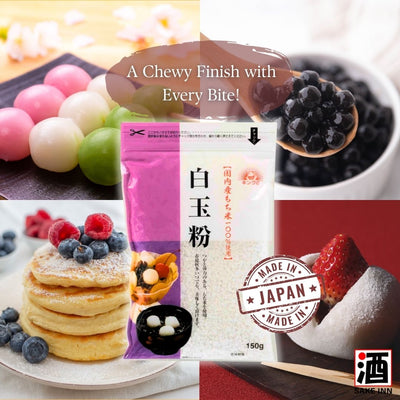Shochu Guide: Basics
Many people would have heard and tried sake, but Japanese shochu is still relatively unknown in Singapore. This simple guide will help you to maybe choose your next favourite drink!
What is shochu?

Shochu (焼酎) is a traditional Japanese hard liquor. It is a distilled alcohol, quite similar to vodka, yet do not mistake it as a 'Japanese' vodka. Shochu can be distilled from a wider variety of base ingredients such as sweet potatoes (imo) and barley (mugi). Shochu also has a much higher alcohol content than sake, wine or beer, at around 25-37 percent, but can also go as low as 20 percent or as high as 45 percent depending on the type of shochu.
Shochu is traditionally a single distilled alcohol. However thanks to modern machinery for repeated distillation, you can also see multiply-distilled shochu. This multiply-distilled shochu usually can be found mixed into cocktails and chu-hais.
History of shochu
The earliest record of shochu being found in Japan's history can be dated to at least the 16th century. Interestingly, one of the oldest direct written reference of shochu in Japan can be attributed to two carpenters. In 1559, two carpenters working on the Hachiman Shrine in Okuchi, Kagoshima inscribed graffiti to a wooden plank on the roof of the shrine. The graffiti indicated their unhappiness towards the high priest whom they felt was stingy for never once giving them some shochu to drink.
Ways to Enjoy Shochu

Shochu, like any other spirit, can be enjoyed in many ways. You can drink it on the rocks, diluted with water/soda and even in cocktails or tea. However, the most common way to consume would be mixing shochu with cold or hot water. You check out here for a step-by-step and a more detailed guide on how to drink your favourite shochu!
In addition, another favourite way to enjoy shochu would be in the form of chu-hi (shortened from "shochu highball"), where you mix shochu and soda. We will regularly update our blog for more recipes to create your own chuhai and shochu cocktails, so do check back for more ☺️
Different Types of Shochu
Sake is made solely from rice while shochu can be made from many different kinds of raw materials such as sweet potatoes, barley, buckwheat, corn, brown sugar, chestnuts, etc, or a combination of it.

-
Rice (kome) shochu has a fairly thick taste. The aroma of grain is similar to that of sake, which it shares its base ingredient with. Pair kome shochu with any kind of cuisine, especially sashimi, or enjoy it with rice dishes like donburi. Buy your rice shochu here.
-
Sweet potato (imo) shochu has a plump fragrance and soft sweetness. The distinctive taste and aroma is also best enjoyed with fatty dishes like fried food. Great with fried tempura or even chicken rice. Find out more about imo shochu here.
- Shochu distilled from barley (mugi) results in a light, clean and mild taste. It is easy to drink, and if allowed to cask-aged, the taste will be slightly reminiscent of single-malt whiskey. Goes well with most kind of food, especially simple dishes like smoked salmon or sushi. Find some of our best-selling mugi shochu here.
- Shochu distilled from brown sugar has a clean, dry taste. Contrary to what many believe, the resulting shochu is not as sweet as expected. If you are interested in brown sugar shochu, you can find them here.
-
Buckweat (soba) shochu has a sweet, fruity aroma that lingers. It has a milder taste compared to mugi shochu, but with the same drinking ease. Best enjoyed with meats and seafood.
- Shiso Shochu is made with the aromatic shiso shochu, it carries a wonderful scent and soft flavour of shiso leaves.
However, Japanese shochu is not just limited to all these, there are many other ingredients used in shochu making that includes chestnut, corn and kokuto (sugarcane). The choices are endless are also each shochu would differ in taste, so you might prefer one than the other.
———
So go out there and try some shochu for yourself. Head over to our shochu collection and try a shochu or two! You will never know what you will like. Do share with us your favourite shochu or let us know what you would like to see here at Sake Inn :-)




















Leave a comment